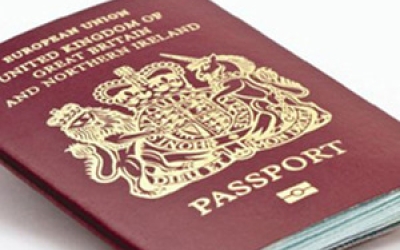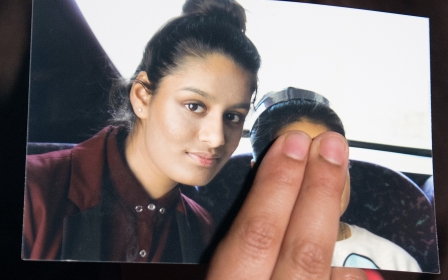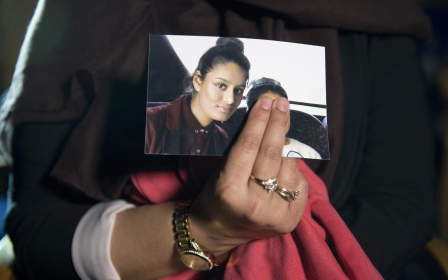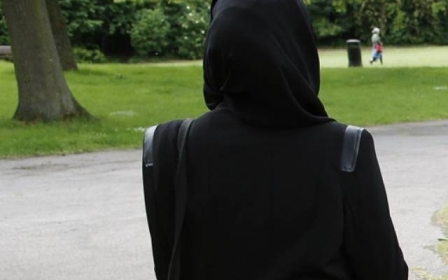Why I am boycotting Britain's two-tiered justice system

On 26 May 2017, my family in the UK received a letter informing them that my British citizenship had been revoked.
This started what became a legal marathon spanning the last two years. Today, I have decided to bring it all to an end.
New MEE newsletter: Jerusalem Dispatch
Sign up to get the latest insights and analysis on Israel-Palestine, alongside Turkey Unpacked and other MEE newsletters
Being British is part of who I am. I was born and raised in the UK. I attended schools and colleges there. Revoking my citizenship rights changes none of that.
I have always believed that we had a robust legal system in the UK. I felt safe knowing that if I was ever to be falsely accused, I would have my day in court and be able to adequately defend myself. This is an assumption all British people should have.
But this all changed when I began the process of defending myself against citizenship removal.
Firstly, my case was to be heard at a secret court known as the Special Immigration Appeals Commission (SIAC). This meant I had no access to the evidence against me, nor could I choose who I wanted to represent me.
The UK and citizenship-stripping powers
+ Show - HideThe UK has been described by researchers as a “global leader in using citizenship deprivation as a counterterrorism measure”.
Historic citizenship-stripping powers targeted at naturalised citizens on disloyalty grounds had largely fallen into disuse prior to 2002, when the government introduced new measures in an attempt to revoke the citizenship of Abu Hamza, an Egyptian-born cleric subsequently convicted of terrorism in the US.
The 2002 legislation allowed for British-born nationals as well as naturalised citizens to lose their nationality rights. Successive governments gradually broadened the scope of the powers so that home secretaries can now deprive anyone of citizenship if they are satisfied that doing so is “conducive to the public good” and would not leave an individual stateless.
No criminal conviction is required. Letters often state that individuals have been assessed as presenting “a risk to the national security of the United Kingdom”.
The government’s use of the powers surged to unprecedented levels in response to the perceived threat posed by British nationals returning from Syria.
Between 2010 and 2015, 33 people were stripped of their citizenship, according to Home Office figures. In 2016, 14 people were deprived, and in 2017 the number jumped to 104.
In 2018, the figure was 21, and in in 2019 - when Shamima Begum was among those targeted - it was 27. It then dropped to ten in 2020 and eight in 2021.
Some subjects of citizenship-stripping orders argue that they have been left effectively stateless, because the government bases its assessment that they are dual nationals on a right of citizenship to a parent’s country of birth, even if they have never taken up that citizenship or even visited the country.
In some cases the Special Immigration Appeals Commission, which rules on citizenship cases, has agreed: it has ruled in favour of British nationals of Bangladeshi descent on the grounds that Bangladesh does not consider them citizens if they have not claimed Bangladeshi nationality before the age of 21.
Human rights organisations and lawyers have compared the powers to “medieval exile and banishment”. Critics also point out that the powers create a two-tier system in which only those deemed to be dual nationals are at risk of losing their British citizenship; a measure that discriminates against naturalised citizens, immigrants and their children.
To engage with this process, my lawyers had to instruct a “special advocate” - a vetted barrister approved by the government - and tell him everything that needed to be known about me. This had to be done without me or my lawyers ever seeing the actual evidence being used against me.
Draconian system
Secondly, defending yourself against allegations where no evidence is presented to back them up is impossible. It became clear to me that the special advocates were merely there to keep up appearances; to give an image that justice is being served. The reality could not be more different.
I no longer want to be party to a system that is rubber-stamping a kind of medieval exile process against its own people
Thirdly, in the course of the legal action, it dawned on me that the state’s discretion is absolute in these cases. Those who have won their cases have only ever done so on technicalities with no bearing on the draconian nature of citizenship deprivation. Almost all citizenship deprivation cases are upheld by the SIAC courts.
Based on these hard facts, I realised that I would not get the fair trial I once believed was my right as a British citizen - so I have decided to boycott the SIAC process.
The whole process amounts to a two-tier justice system that has been used on an unprecedented and discriminatory scale against British Muslims.
I no longer want to be party to a system that is rubber-stamping a kind of medieval exile process against its own people. I and my children will live with the uncertainty that we are forever stateless.
Affront to justice
Because I’m the child of immigrants, the UK government believes it can treat me as a second-class citizen.
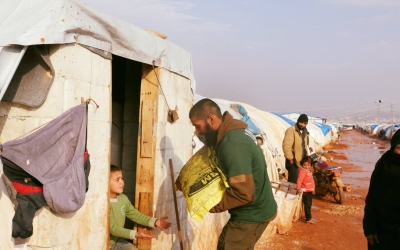
This is despite the fact that the work I do today, in saving lives, has been to a large extent inspired by what I believed were the British values of compassion and doing good for others. Today, we have 41 aid projects in Syria, employing more than 200 people.
However, the British government has rendered me stateless, claiming I am “not conducive to the public good”.
The SIAC and special advocate system are an affront to justice. They cannot exist in a country that respects any semblance of due process.
I hope my actions will inspire others facing a similar situation to also boycott the SIAC, as well as lawyers who believe in due process, so that we can bring this country back to its senses.
This is an edited version of an open letter sent by Tauqir Sharif to the UK's Special Immigration Appeals Commission. The views expressed in this article belong to the author and do not necessarily reflect the editorial policy of Middle East Eye.
Middle East Eye delivers independent and unrivalled coverage and analysis of the Middle East, North Africa and beyond. To learn more about republishing this content and the associated fees, please fill out this form. More about MEE can be found here.



